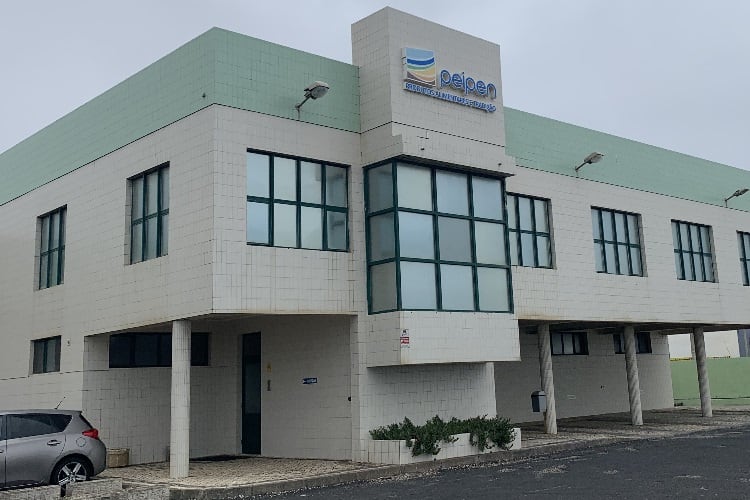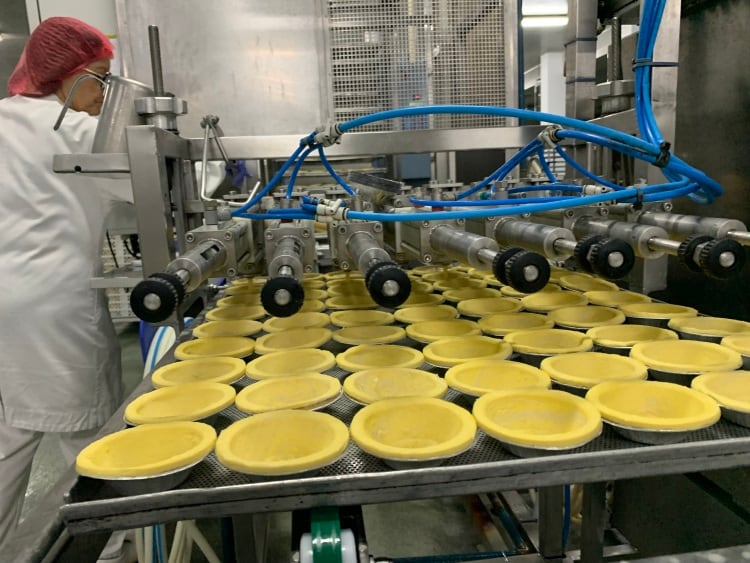
Peipen – based in Peniche, just to the north of Lisbon – specialises in the country’s most treasured cream pastry: pastel de nata.
If you’ve spent time in Portugal, you would have undoubtedly encountered the iconic egg tart, beckoning from every bakery window with their flaky crust, custard centre and deeply caramelised top.
Egg custard tartlets
Pastéis de nata (more than one; a singular delicacy is called a pastel de nata) are also referred to as pastéis de Belém, after the Lisbon district of Santa Maria de Belém and specifically, the Fábrica de Pastéis de Belém bakery.
Purportedly, the monks at the Jerónimos Monastery in Belém created the mini tart in the 18th Century to use surplus egg yolks after using the whites to starch clothing. The monastery was closed after the Liberal Revolution of 1820 and the monks passed the recipe to the local sugar refinery, who opened the famous Lisbon bakery in 1837.
With advances in processing and packaging, the tartlets have enjoyed a far wider fan base, demonstrating strong growth in retail and foodservice in recent years in the UK and continental Europe. Wirral-headquartered Baker & Baker’s own pastel de nata portfolio has delivered strong annual sales, and the company anticipates further growth following the purchase of Peipen’s operations.

Room for growth
Peipen has been a direct supplier to Baker & Baker for several years, and the acquisition brings production inhouse, facilitating further capacity for pastéis de nata and installation of additional sweet bakery lines.
The Peniche site – originally owned by Unilever – has a total footprint of around 5,000m3 and currently produces around 1,000 tonnes a year. The modern facility – which has food safety certifications IFS and FDA – also manufacturers non-bakery lines, but these will be discontinued by the end of 2022, facilitating additional capacity for further speciality bakes.
Baker & Baker has acquired the order book, all equipment and machinery, and has assumed full responsibility for Peipen’s 60-strong workforce.

Expansion in Portugal
The site is the third manufacturing location operated by Baker & Baker in Portugal, in addition to Santo Tirso and Sāo Joāo da Talha, and follows long-term organic growth in the Iberian region.
“We’re thrilled to have concluded the acquisition of Peipen. It’s a strong business that has supported us as a supplier for many years,” said John Lindsay, European CEO of Baker & Baker.
“The facility complements our existing portfolio by adding an attractive, core bakery line and supports our move towards developing our speciality laminated business in our growing Iberian market and quickly adds much needed capacity.
“We’re confident that Baker & Baker Peniche can deliver further growth for our business, through additional pastéis de nata listings and the introduction of additional speciality bakery lines.”




